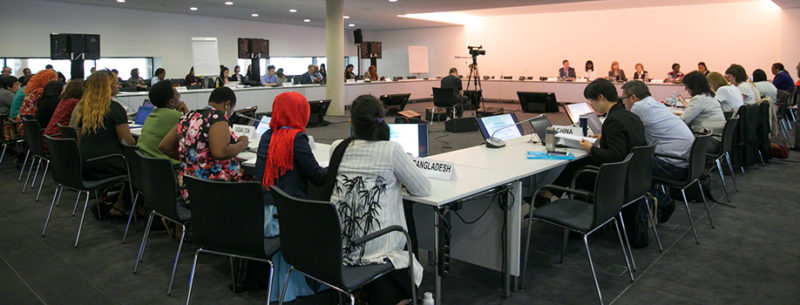Experts from all around the world gathered at the UN intersessional climate talks in Bonn, Germany to step up action on gender and climate change with a series of workshops and dialogues. The two-week summit held from April 30 to May 10, 2018.

The Gender Action Plan (GAP) of UN Climate Change recognises the differentiated impacts of climate change upon women and men and supports the gender-related actions under the UN Framework Convention on Climate Change with respect to the Paris Agreement.
The plan urges immediate advancement of women’s participation, promotes gender-responsive climate policy and mainstreaming of the gender perspectives in the Paris Agreement’s implementation.
Organised by the UN Climate Change secretariat, the meetings highlighted solutions on how to intensify the implementation of the GAP, including how to address the impacts of climate change on women and girls in climate action.
“We know that the role of women as agents of change and their participation in the political process contributes to the transformation of our society towards a low-carbon and resilient development,” said Jeniffer Hanna Collado of the Dominican Republic’s National Council for Climate Change and the Clean Development Mechanism.
Specifically, experts and researchers from civil society and the public sector explored some of the currently available resources to create gender-responsive climate policies and good practices for addressing gender and climate change. The importance of having gender-analysis and sex-disaggregated data was high on the agenda.
“Sex-disaggregated data and gender data is vital for framing decision-making processes as well as for monitoring the impacts of implementation,” said Lorena Aguilar from the International Union for Conservation of Nature (IUCN).
Women and girls are among the most impacted parts of populations when it comes to climate change, as in many regions of the world, women and girls rely on natural resources for their work and livelihood. However, their access to resources and rights to land ownership are often limited.
It is important to understand that the gender dialogue in climate talks is not only about women, but about both women and men. Also important is to ensure continuous research, with the participation of women, as they are most affected by climate change.
Efficiency in creating gender-responsive climate policies lies in ensuring gender analysis of climate policy and action and in mobilising existing and new resources.
Markus Ihalainen from the Centre for International Forestry Research, mentioned in Bonn that “we need to move beyond female and male binaries and also understand that gender relations can change over time and are affected by climate change as well as responses to it”.
The discussions about the progress on the Gender Action Plan will continue in Katowice at the UN Climate Change Change Conference COP 24 in December.
